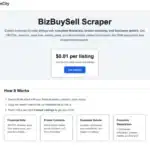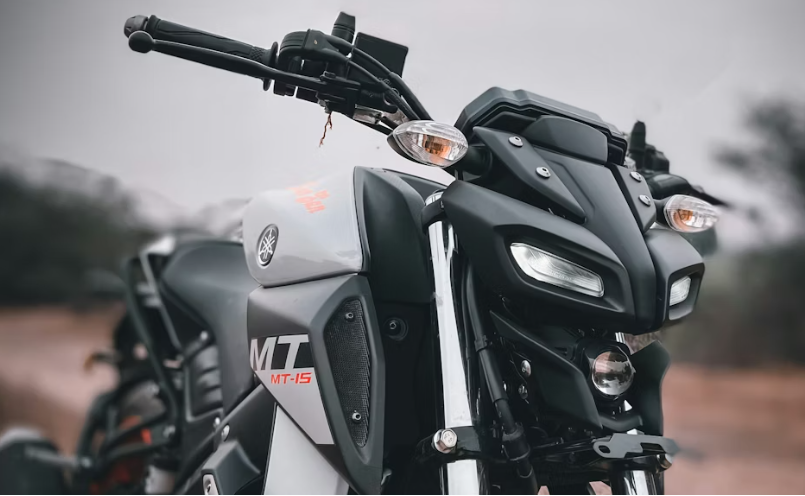The Smart Buyer’s Deep Dive: Used Class C Motorhomes for Sale

Have you ever found yourself thumbing through listings and thought: “Could a used Class C motorhome be the right adventure rig for me?” If so, then you’re in good company. When you’re looking at used class C motorhomes for sale, you’re exploring a sweet-spot in RV ownership not brand-new so you don’t pay full depreciation, yet not so old you’re swamped with issues. I’ve ridden shotgun through countless dealer lots, poked around chassis bays, and inspected overhead-cab bunks to help folks make the right call. In what follows I’ll walk you along the key considerations, trade-offs, must-check items, brand/purchase guidance, cost expectations, and some of the emotional factors that often go unmentioned (but matter).
Let’s get to it.
Why Consider a Used Class C?
The appeal of the format
Class C motorhomes you’ll recognise them by the “cab-over” bunk or storage area that extends over the driver’s compartment strike a balance. They’re more manageable than the large Class A giants, yet feel more like a “real” home-on-wheels than many of the smaller vans. That makes them quite appealing if you want versatility: weekend get-aways, family trips, sometimes even full-time living.
And if you opt used, one of the major benefits is cost-savings. Many used Class C RVs hold decent value and you avoid a big chunk of the new-vehicle depreciation.
Market snapshot
Just to ground this: listings for used Class C motorhomes are plentiful. For instance, on one major platform you’ll find thousands of Class C RVs in the used category. On another site, the price range for used Class C extremes runs roughly from ~$38,000 to ~$343,500, depending on age, features, and condition. So yes lots of options, and lots of variation.
What you’re really buying
You’re buying a vehicle and a place to sleep, cook, live for a bit. That dual nature means you’ve got more check-boxes than just “does the engine run?” You’ll care about floor-plan, roof condition, plumbing, slides, chassis integrity, etc. Which means that when you’re scanning used class C motorhomes for sale, you’ll want to be a bit more meticulous than when buying, say, a used sedan.
Key Factors to Evaluate Before You Buy
- The chassis, mileage & mechanicals
Since many Class Cs are built on commercial-vehicle chassis (cut-away vans or trucks), you’ll want to dig in here. Ask:
- What engine/chassis type (e.g., Ford E-450/E-350, Chevy, Mercedes Sprinter) is it based on?
- What’s the odometer/miles on the engine and transmission? High mileage isn’t necessarily a deal breaker if the rig has been cared for, but it issomething to note.
- Has the vehicle’s service history been maintained (oil changes, drive train, etc)?
- Are there signs of heavy use (tows, commercial rental, etc)?
- RVs often get more wear in weird places than cars.
- Exterior & structural condition
Here you’ll want to walk around carefully:
- Inspect the roof: Any signs of leaks or repairs? The roof is the enemy of many older RVs because if water gets in, interior damage and rot can follow.
- Examine the exterior walls: bulges, bubbles, delamination.
- Underneath: look at the frame, rust, suspension, tires age (tires often get neglected).
- Slide-outs (if any): Do they operate smoothly? Are the seals intact?
- Many used class C motorhomes for sale may have small “fixer” items that turn into bigger headaches if ignored.
- Interior systems & amenities
This is where you’ll see how “home-ready” the motorhome is.
- Plumbing: check faucets, toilets, water heater, pipe joints.
- Electrical: lighting, outlets, generator (if included), inverter, battery bank.
- HVAC: air conditioning, furnace/heater do they work?
- Appliances: fridge, stove, microwave, maybe washer/dryer prep.
- Floors, upholstery, mould, odours all tell a story.
- If the interior is shabby or damaged, it’s not only less pleasant, it often signals neglect.
- Floorplan, layout & usability
One advantage of a used rig is you may snag a premium floorplan at a discount, but you still need to ask:
- Does the layout fit your travel style (family vs couples vs solo)?
- Bunk-over-cab vs no bunk: do you need the extra bed/sleep space?
- Kitchen, bath, storage: are they adequate for you?
- Driving ease: some Class C rigs are large and can feel truck-like. If you plan frequent moves, size matters.
- Resale and ongoing costs
Because you’re buying used, anticipate:
- Maintenance costs (tires, belts, slides, gaskets, etc).
- Fuel costs (Class C rigs tend to be gas or diesel, and consumption can be high).
- Insurance, registration, storage if you’re off-season.
- If you ever resell, how will that market look? Strong brands and good condition help.
Pricing and Budgeting: What to Expect
When you’re searching for used class c motorhomes for sale, the numbers vary widely.
- Some listings show used Class C rigs starting as low as ~$30,000 in good condition.
- Others go well over $150,000 depending on luxury, low miles, diesel engine, slides, multiple baths, etc.
- The “average” used Class C on one site was around ~$153,000.
So when you budget, be realistic: if you find a great used Class C at $40-50k that meets your needs, that could be a very smart buy. But if you fall in love with a near‐new luxury diesel rig that’s $120k used, you’ve entered a different game.
Don’t forget to budget for the “hidden” costs: repairs, tires (yes, even new tires on big rigs cost a lot), generator service, slide‐mechanics, roof seal maintenance, etc. A clean used purchase isn’t just the sticker price it’s the future dollar stream.
What Makes a Good Brand or Model?
I’ll be honest: “good” is somewhat relative based on usage, maintenance, and condition. But there are a few guidelines that tend to hold up.
Stick to recognizable brands with service history
Brand names that tend to show up in listings for used class C motorhomes for sale include Thor, Coachmen, Winnebago, Jayco, among others. You’ll get a stronger resale value and better parts availability this way. For example, listings on certain sites highlight Coachmen and Winnebago models explicitly.
Consider diesel vs gas
Diesel Class C rigs often command premium prices, partly because of better fuel economy (in some cases), often stronger chassis, and generally longer lifespan. If you’re buying used, a well-maintained diesel rig can be a very smart long-term decision. On the flip side, gas motorhomes tend to cost less and the service network may be more convenient. Trade-off.
Size, slides and amenities
Larger rigs with multiple slides, bunkhouses, full baths, washers/dryers, etc., will cost more and may require more maintenance. If you’re solo or couple-travelers, a simpler layout may be wiser. For many buyers of used class C motorhomes for sale, stepping a size down fewer slides, simpler floor plan can mean fewer things to potentially go wrong.
Condition over brand
One thing I emphasise: a lesser-brand rig in excellent condition beats a flagship brand in poor condition any day. Maintenance history, no major accidents, well-sealed roof, service records these matter more than just the label.
Walkthrough: Inspecting a Used Class C
Here’s a practical “walk-with-me” checklist for when you inspect a used Class C. Feel free to take notes or even film parts of the tour to revisit later.
Pre-visit homework
- Get the VIN and ask for service records.
- Ask how many owners the rig has had.
- Ask about any accidents or structural repairs (roof, frame, water intrusion).
- Check how slides have been treated and whether the seals have been replaced.
On-site inspection
- Driver-cab and chassis: Start with engine bay, check fluid leaks around engine, transmission, axles; tires’ age (look at manufacturing date on sidewall); check brakes and suspension for wear; inspect frame underside for rust or damage.
- Exterior shell & roof: Walk the roof if possible (and safe). Feel for soft spots, check seams and roof-cap flashing. Examine exterior walls for warps, bubbles (possible delamination).
- Slide-outs: Operate them. Watch for unusual noises, check seals, evaluate how flush the walls become when retracted.
- Interior: Go in and check flooring (soft spots), quilting under cabinets, look for water stains on ceilings/around windows. Run faucets, flush toilets, test A/C and heaters.
- Systems: Turn on power generator (if available), test inverter, check batteries, lighting and outlets. Inspect fridge run, microwave function.
- Drive test: Take a spin if possible. How does it feel? How are the brakes? Steering? Any odd noises? How does the engine respond?
- Smell test: Sounds basic, but smell matters musty smells might hint at unseen water damage or mould.
Red-flags
- Signs of water intrusion (especially near windows or roof).
- Roof still relying on original sealants after many years (a roof job can be expensive).
- Slides that are stuck, noisy, or leaking.
- Poor tyre condition or extremely old tyres (even if only lightly used).
- Engine/transmission issues or no service records.
- Hidden damage from rental service (many RVs have been rented and abused).
Financing, Insurance & Ownership Ongoing Realities
Buying a used rig means thinking beyond the sticker price.
Financing
Used class C motorhomes for sale are often financed differently than standard vehicles. Interest rates may be higher, terms may be longer. Lenders will look at age, mileage, model condition. Some dealers mention special rates or financing programs tailored for RVs.
Insurance & registration
Insurance for an RV can vary widely based on usage (travel vs storage vs full-time living), vehicle age, and equipment. Make sure you get quotes in advance. Registration fees, especially if the rig moves between states or you plan long-term travel, can vary too.
Maintenance & depreciation
Even used, RVs depreciate. But you’re in a better place than a new buyer because a lot of the initial drop has happened already. Maintenance, though, still adds up: annual servicing, generator maintenance, roof seal inspections, slide upkeep, tires, chassis servicing. If you’re buying used, plan for “just in case” expenses.
Storage & usage
If you don’t plan to travel year-round, you’ll still need to consider where you’ll store the motorhome. Some parks charge storage fees, some you may choose to keep at home (if space allows). Also think about the usage pattern occasional weekend trips vs full-time nomad living. The usage will influence which used class C motorhomes for sale will make sense.
Use-Case Scenarios: Which Buyer Are You?
Not all buyers of used class C motorhomes for sale are the same. Let’s break down a few typical situations, and which rig might suit.
The weekend warrior couple
You’re two people, maybe a dog, planning Friday night to Sunday afternoon get-aways. In this case:
- Choose a moderate size (24-28 feet) to keep driving easy.
- Minimal slides or single slide avoids extra maintenance.
- Gas engine might suffice (less initial cost).
- Prioritise comfort over luxury bells.
- Good used class C motorhome deals appear in price ranges ~$40k-$70k (depending on age) if used well.
The family of four with kids
You need bunkbeds, a full bath, decent kitchen, storage for gear. Consider:
- 30-33 foot length rigs provide space but are still manageable.
- Look for reliable floorplans with bunks + couch + full bath.
- Slides may help expand space when parked, but raise maintenance.
- Budget will be higher factor in fuel, insurance, servicing.
- On the used market, likely in range ~$60k-$100k depending on condition & age.
The full-timer/nomad
If you’re looking for used class C motorhomes for sale to live in full-time:
- Consider diesel engine for longevity and performance.
- Look for multiple amenities: washer/dryer, large water tanks, solar prep, dependable generator.
- Structural condition becomes even more critical.
- Expect spending more upfront (used price could be $100k+), but long-term value is in durability.
- Factor in that you’ll need to maintain like a home on wheels.
Why Some Used Class C Motorhomes for Sale Are Smart Buys (And Why Some Aren’t)
The “smart buy” scenario
- A used Class C from a one-owner non-rental history, with service records, good tyres, sound roof, moderate mileage.
- A floorplan you actually like (not just what’s available).
- A price below what you’d pay new minus the depreciation buffer.
- A condition where you won’t immediately need to spend a lot to “fix up”.
In that scenario, you’re buying freedom the ability to move, travel, stay somewhere that’s yours. That’s priceless for many.
The “riskier buy” scenario
- Unknown history, heavy use (rental fleets), neglected maintenance.
- Signs of water damage, older tyres, non-functioning systems.
- Likes the floorplan but ignores the mechanical red flags.
- Chooses the cheapest rig just because of price, only to spend thousands soon after.
The truth is: you’ll often find cheaper used class C motorhomes for sale, but many come with hidden costs that swamp the discount. That’s why the inspection matters.
Tips for Negotiation and Securing the Right Deal
- Have a vehicle inspection checklist (see earlier section). Bring someone knowledgeable if possible.
- Ask about “hidden” condition: e.g., how often slides were serviced, roof replaced or resealed, whether the generator was run regularly.
- Negotiate based on condition: if you spot worn tyres, old batteries, a roof needing resealing use that to ask for a reduction.
- Consider total cost of ownership, not just purchase price. Even “cheap” can become expensive.
- Check comparable used class C motorhomes for sale listings what similar rigs are going for in the market? Use the ~$38k to ~$150k range quoted earlier for reference.
- Insist on seeing the rig in action: drive it, use systems, open and close slides, test A/C/heat.
- Verify title, ownership, any accident history. Ask for the VIN and run reports if possible.
- Ask about storage history: Was it stored indoors? Was it exposed to winter weather? That matters.
Common Mistakes Buyers Make (And How You Can Avoid Them)
- Fixating only on purchase priceforgetting the maintenance, repairs, tyres, storage, etc.
- Avoid this:Add a buffer to your budget for “just in case”.
- Ignoring the roof & water intrusion riskbecause repair costs can be huge.
- Avoid this:Walk on the roof if safe, inspect the ceiling inside, ask for history.
- Overlooking slide-mechanism problemsslides are heavy, expensive to fix.
- Avoid this:Operate them during inspection, ask about delays/stalls, look for seal replacement.
- Choosing a floorplan without considering how easy it is to drivea 33′ rig sounds lovely until you’re parking it in a regular spot.
- Avoid this:Test-drive in real conditions; consider the routes you’ll take and whether size will be a hassle.
- Buying without service records or owner historyhidden headaches dwindle value fast.
- Avoid this:Demand service logs; if none, consider reducing offer or walking away.
Final Thoughts: Is It Right For You?
Let’s be real: buying a used Class C motorhome is as much a lifestyle decision as a vehicle decision. If you love the idea of hitting the road, parking somewhere quieter, having your own home-on-wheels then finding a well-conditioned used Class C from the used class C motorhomes for sale market can be a brilliant investment (in memory, experience, freedom). If instead you worry about maintenance burden, large vehicle logistics, storage, then you may end up with buyer’s remorse.
So ask yourself:
- What kind of travel will I do (weekends only? Long trips? Full-time?)
- How comfortable am I with vehicle maintenance or hiring someone to handle it?
- Do I have a realistic budget not just for purchase, but upkeep, storage and usage?
- Does the rig I’m eyeing fit mytravel style and not just look fun in the ad?
If you can answer those, then go explore listings of used class C motorhomes for sale with confidence. There are gems out there. And the freedom that comes along? It’s hard to put a number on.

How Reliable Data Extraction Improves BizBuySell Market Evaluation

Building Strong Data Protection Habits for Ontario Businesses

3 Proven Ways to Improve Employee Productivity at Your Business

Accelerating drug discovery through the DEL-ML-CS approach

AI in Marketing Is No Longer a Buzzword — It’s the Strategy

How to Build, Customize, and Tune Your Own 50cc Mini Chopper for a Unique Look and Better Performance

Real-World Breaches That Could Have Been Prevented with Attack Surface Management (ASM)

White Dots on iPad Screen Understanding the Causes and Fixes








